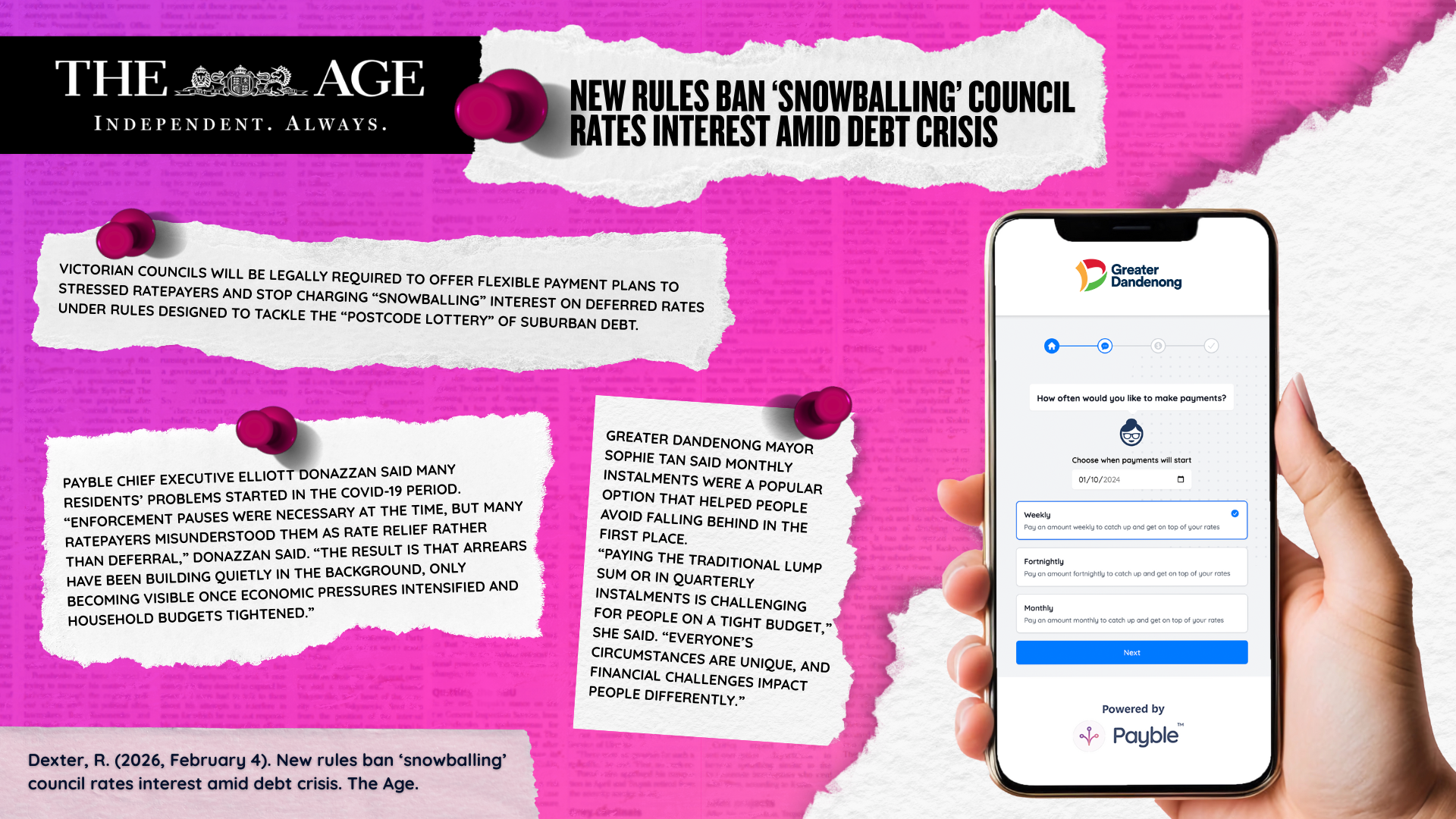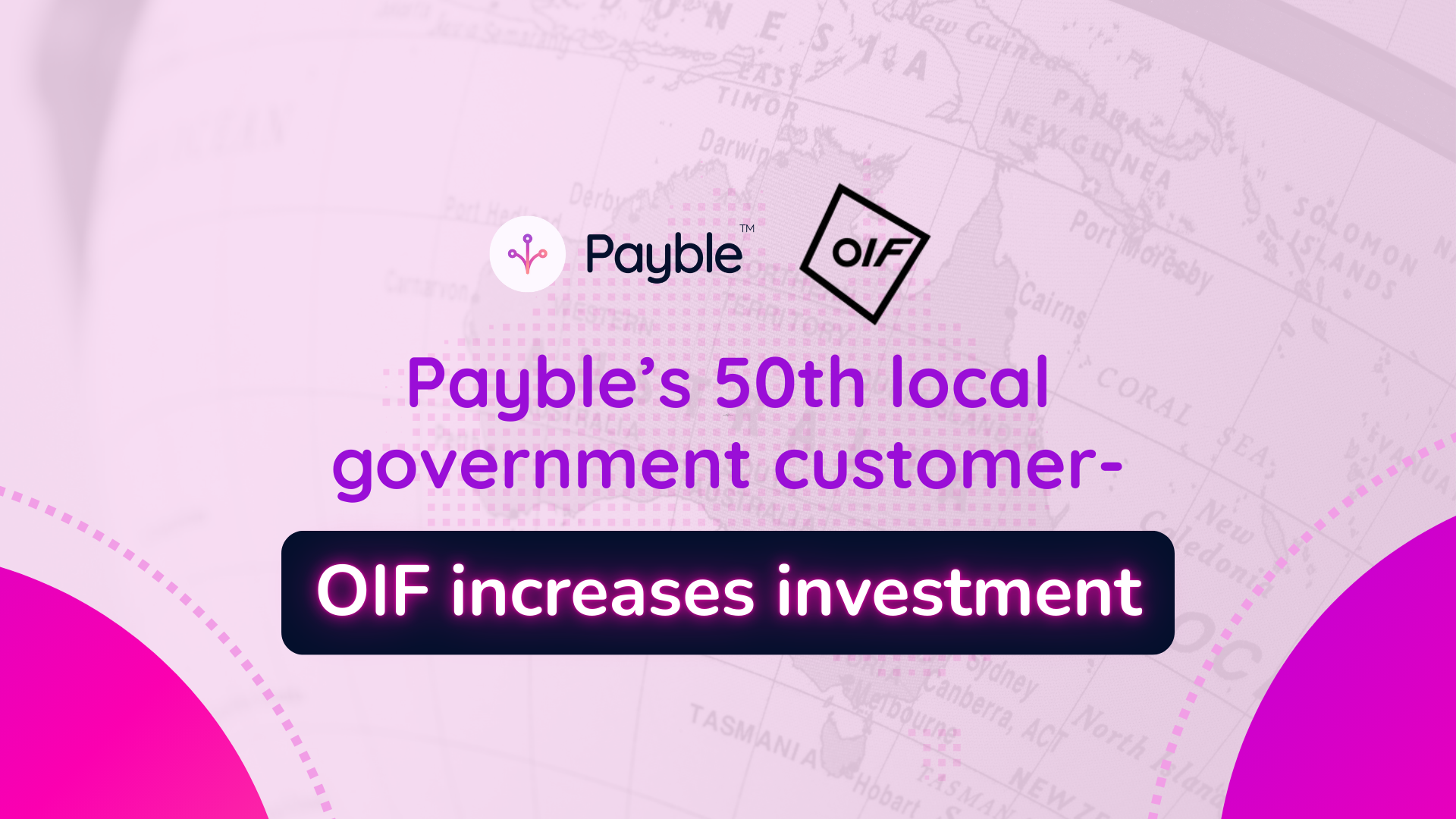Why Australian Councils are Turning to Payment Experience Platforms to Ease Ratepayer Stress
Why Australian Councils are Turning to Payment Experience Platforms to Ease Ratepayer Stress
As Australians and New Zealanders grapple with the impact of soaring expenses, local councils are turning to payment experience platforms to help alleviate the pressure on ratepayers.
Scroll through social media and you’ll notice people talking about the cost of living. Many have had to cut regular expenses — whether it be fresh fruit, going out to brunch, or visiting the hairdresser — out of their budget.
However, the financial strain is not limited to spending. It also extends to essential bills, causing significant stress for four out of five Australians, as reported in a recent article in the Courier Mail.
Surprisingly, even those making over $200,000 annually are feeling the pinch, especially those managing hefty mortgages in urban areas.
Despite these challenges, there is a ray of hope on the horizon. Payble, an Australian fintech company, has partnered with more than 20 councils in Australia and New Zealand to offer support to struggling ratepayers via their payment experience platform for local government. Through payment options, empathetic management of payments and proactive reminders Payble aims to alleviate financial burdens and assist households in staying financially afloat.
What causes late rate payments?
While the cost of living certainly plays a role, there are other underlying issues at play, such as the rigid nature of traditional billing cycles and the unpredictable aspects of personal financial situations.
Billing cycles
One factor contributing to missed payments is the inflexibility of quarterly billing schedules. Let's imagine a scenario; You're a solo parent balancing jobs to make ends meet. Every sixmonths you receive a bill that requires a portion of your income all at once.
Despite your efforts to budget wisely, these large and infrequent bills can pose challenges in planning. The funds you set aside may end up being used for emergencies or vehicle repairs, leaving you struggling to cover all your expenses.
The unpredictability of personal finances
Life is full of events. Be it a job loss, an unplanned medical cost, or even something as routine as an unexpectedly high utility bill. Such unforeseen expenses can disrupt anyone's plans making it challenging to stay on top of scheduled payments.
For instance, take into account a self-employed individual whose monthly income fluctuates significantly.
In some months they may earn enough to cover all their bills. In other months a significant drop in income could occur due to fewer projects. Keeping up with bills on a regular basis can be challenging.
Administrative overload
Missing a payment doesn't always stem from carelessness but rather the number of tasks vying for attention. Traditional billing methods typically rely on mailed reminders or static emails that are easily missed or forgotten. Without reminders, it's simple for payments to slip through the cracks.
Juggling household responsibilities can mean ensuring the kids are at school on time, meeting work obligations, and trying to keep on top of the shopping and laundry. Amidst all these tasks it's not surprising that remembering a bill date might not be a top priority.
Head in the sand
The pressure and worry linked to handling bills can also lead to missed payments. When individuals are constantly fretting about meeting obligations, it can result in a sort of paralysis where dealing with bills, or even looking at them, feels overwhelming. This emotional weight can lead to procrastination and avoidance resulting in missed payments.
The impact on diverse households
The influence of these factors varies among household setups. For instance, single income families rarely have flexibility in their budgets to handle expenses or handle large bills that come infrequently. For them, a single missed payment can swiftly escalate into a crisis.
Even households with decent incomes aren't exempt. Those with mortgages or significant financial obligations may find themselves financially strained, especially if their income depends on fluctuating bonuses or commissions.
How can councils support their ratepayers?
Payble has partnered with more than 20 councils, in Australia and New Zealand to help homeowners in three ways:
Proactive alerts
In today's busy world, it's easy to overlook deadlines.
Payble is dedicated to assisting people manage their bills by sending notifications to avoid missed payments. For example, a friendly text message might read, "Hello Sarah, a heads up that your $125 rate payment is due Wednesday. Feel free to reach out if you need any assistance!" Councils can also choose to send email reminders before the due date with a link for payment or reviewing the balance.
Flexible payment options
Payble has introduced a system that allows ratepayers to break down their bills into more manageable payments.
For instance, a young family struggling with a $450 lump sum every three months could opt to pay $150 per month. This method aligns payments with income schedules and other financial obligations, helping households better manage their finances so they can avoid falling behind.
Understanding
Life's challenges can disrupt the most responsible homeowners' financial stability. Whether it's illness, reduced work hours, or major home repairs putting pressure on the household budget, keeping up with rate payments can become difficult. During trying times, what struggling bill payers truly need is support and some room to breathe.
Payble's approach to handling payments focuses on understanding and flexibility. Instead of resorting to measures like late fees and debt collection, Payble works closely with local authorities to find mutually beneficial solutions.
For instance, if someone falls $200 behind on their rates due to a setback, Payble can help them by spreading out the payment over four instalments. This approach allows ratepayers to recover without facing strain. It also upholds their dignity and peace of mind through communication rather than adopting an adversarial stance.
Book a demo today
With Payble, councils gain live insights through real-time data, helping them understand resident sentiment and identify those who may need additional support with their payments. This proactive approach allows councils to engage residents with targeted campaigns, increasing the likelihood of timely payments and improving overall satisfaction with council services.
Payble also enables councils to offer flexible payment options, including recurring card payments and direct debits, which reduce the risk of missed payments and align with residents' lifestyles. This flexibility not only boosts on-time payments but also reduces collection costs and administrative workload.
Learn more about how Payble’s payment experience platform can transform your council’s payment processes by booking a demo today.



.jpg)
